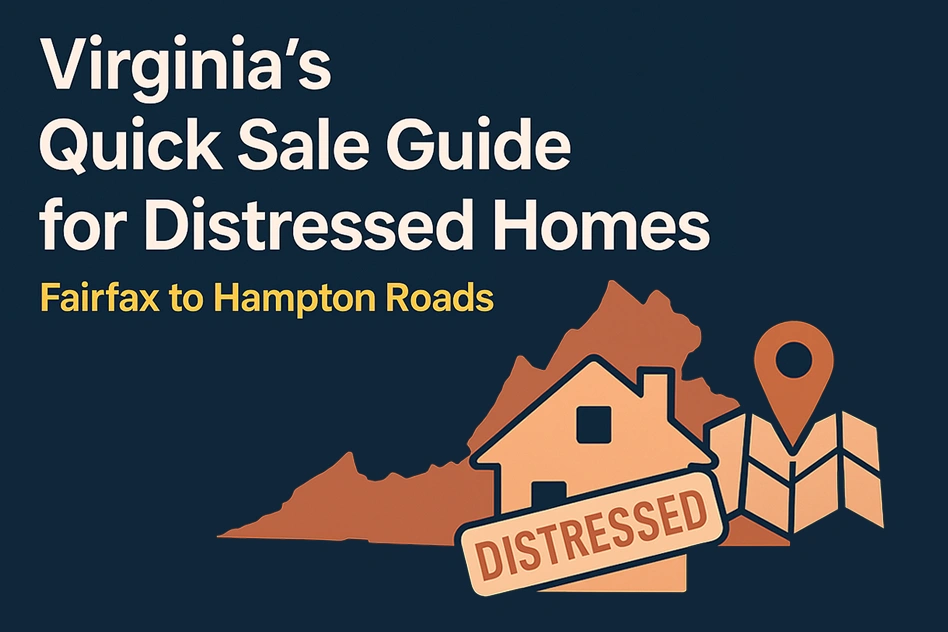Virginia homeowners often struggle with properties requiring extensive repairs or facing challenging circumstances. Understanding your options when selling distressed properties can save thousands of dollars and months of frustration.
Understanding Virginia's Distressed Property Market
Virginia's housing market includes numerous properties requiring significant investment before traditional sale. According to the National Association of Realtors, distressed properties represent approximately 15% of Virginia's housing inventory, creating opportunities for cash buyers while challenging traditional sellers.
Common Property Conditions Affecting Marketability
Properties with foundation issues, water damage, fire damage, or structural problems typically face extended market times. Outdated electrical systems, plumbing problems, and HVAC failures can reduce property values by 10-20%. Inherited properties often accumulate deferred maintenance, creating financial burdens for new owners unprepared for renovation costs.
Traditional Sale Challenges for Distressed Properties
Conventional buyers typically require financing, which necessitates property inspections and appraisals. Lenders often reject loan applications for properties requiring substantial repairs. The Consumer Financial Protection Bureau reports that financing difficulties cause 23% of traditional sales to fall through when significant property issues arise.
Cash Buyer Market Analysis
Virginia's cash buyer market has grown significantly, with Zillow Research indicating 12% of state transactions involve cash purchases. This trend reflects investor demand for properties offering renovation potential and homeowner desire for quick, guaranteed closings without financing contingencies.
Financial Considerations for As-Is Sales
Selling properties as-is eliminates repair costs averaging $15,000-$50,000 for distressed Virginia homes. Homeowners avoid carrying costs including property taxes, insurance, and utilities during extended renovation periods. Quick sales also prevent further property deterioration that increases repair expenses over time.
Legal Framework in Virginia
Virginia's disclosure laws require sellers to reveal known property defects, but as-is sales transfer responsibility to buyers. The Virginia Real Estate Board provides guidelines ensuring legal compliance while protecting seller interests during distressed property transactions.
Regional Market Variations
Northern Virginia's competitive market often favors cash transactions due to high property values and investor activity. Hampton Roads region sees significant cash buyer interest due to military relocations creating time-sensitive selling needs. Richmond's diverse housing stock attracts investors seeking renovation opportunities across various price points.
Evaluation Process for Distressed Properties
Professional property evaluations consider repair costs, local market values, and renovation potential. Structural engineers may assess foundation and framing issues, while contractors estimate repair timelines and costs. These evaluations help determine fair market value for as-is sales.
Making Informed Decisions
Research multiple selling options before choosing your approach. Compare traditional listing costs, repair estimates, and timeline requirements against as-is sale benefits. Consider your financial situation, timeline needs, and risk tolerance when evaluating different selling strategies.
Understanding Virginia's distressed property market empowers homeowners to make informed decisions matching their specific circumstances and financial goals.



